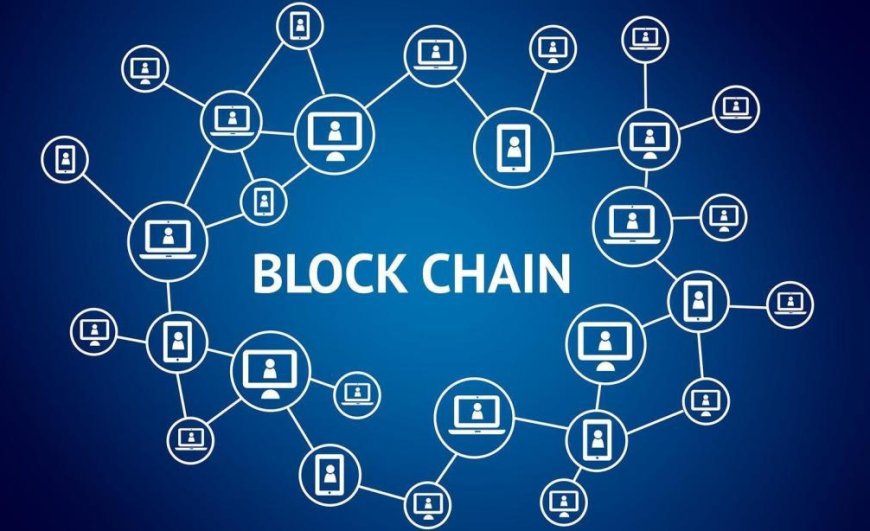What is blockchain? Blockchain Technology Explained
Hey there! Today we’re going to be discussing the subject that has caused much ruckus on the Internet: blockchain technology.

What is blockchain? Blockchain Technology Explained
Introduction

If you’ve been hearing a lot about it and are still somewhat hazy about it, then you used to know what others were going through. Relax! When you reach the end of this blog post, you will know exactly what blockchain is and why it is such a big deal.
A Simple Explanation Of What Blockchain Is
Let’s start simple. Blockchain is distributed electronic record-keeping. Suppose there is a notebook where transactions are recorded. Each page is a block. These blocks are also connected in a fashion that forms a chain. That is where the name comes from. Apparently it is some sort of alien language.
How Does Blockchain Work?
Here’s how it works in a nutshell:
Transaction Occurs: We have a transaction request from someone. This could be sending money or exchanging data.
Blocks are Created: Customers’ transaction details are accommodated in a block. It may be in the form of the transaction amount, the time of the transaction, and other ingredients of the transaction.
Verification Process: The block is later transmitted to a sequence of computers popularly known as nodes. These nodes validate the said transaction. Other precautions and two of the four criteria they assess to ensure the transaction is genuine are:
Block Added to Ledger: Once it is confirmed, it is added to the current chain of blocks of the same type of transaction. These chains make up the blockchain in this way.
Immutable Record: It is now indelible—the kind of information patients increasingly provide on social media. No one can change it. It’s secure and transparent.
Key Features of Blockchain
So let us explain what makes blockchain special. Here are some key features:
Decentralization: The process is designed in a way that nobody and no organization possesses complete control over the blockchain. This means that it is less susceptible to fraud.
Transparency: All trading transactions are clear for anyone who is using the system or is on the network. This helps in the development of trust among users.
Security: These blocks are articulated together with the aid of cryptographic methodologies. As a result, it is extremely challenging to change any information in it.
Immutability: After placing a block, one cannot alter the content or remove it from the page; it has to be edited in another block. This ensures data integrity.
Types of Blockchain
There are four main types of blockchain:
Public Blockchain: It is open, and anyone is free to join and be part of the network. Bitcoin is a prime example.
Private Blockchain: An open network that different persons can use based on their interest in the network. This is normally applied by business.
Consortium Blockchain: Both, a variety of civil and corporate. No single organization operates the network alone; rather, several organizations oversee its operation.
Hybrid Blockchain: The result is that it will incorporate both the public and private blockchain network features.
New Challenges in the Area of Supply Chain Management: Application of Blockchain Technology
The information and its components prove that blockchain is not limited to digital currencies. It has many uses and finds use in several fields. Here are a few:
Finance: Payment and security are areas where the application of blockchain technology is visible in banks and financial institutions.
Supply Chain: Products can follow their path from the manufacturing company to the consumer, and only official products will be in circulation.
Healthcare: Information that belongs to a patient’s chart can remain confidential and be exchanged.
Voting: Blockchain technology may be applied to support security and transparency of the voting processes in order to improve the functioning of democracy.
Blockchain in Finance
Blockchain is disruptive technology in the financial world. It expedites and costs less in the number of transactions. Conventional modes of banking are often expensive and take their own sweet time. This means that with the use of blockchain, it takes minutes to make a transaction. Secondly, they have no intermediary since suppliers directly offer their products to consumers.
With these three given benefits in mind, a number of financial institutions are currently actively researching blockchain. That is why everyone is searching for opportunities to apply this technology to enhance their services.
Blockchain and Smart Contracts
Another unique offering of blockchain is smart contracts. These are smart contracts that automatically execute on the basis of some pre-written code within the contract itself. They implement and prosecute agreements premised on the terms of the included agreements. It also helps to remove the requirements of an intermediary and enhance trust.
Imagine buying a house. Conventionally, this process may take a long time and prove expensive. Unlike in traditional contracts where the terms have to be complied with at the job site, all terms are agreed upfront in a smart contract. Whereas once conditions have been satisfied, the contract performs automatically.
Challenges of Blockchain Technology
Nevertheless, companies have to acknowledge that blockchain is not without issues. Here are a few:
Scalability: When more people use this network, it becomes slow.
Regulation: As we have seen earlier, governments are still struggling with the idea of how to control it and how to legally address the blockchain and cryptocurrencies.
Energy Consumption: Although some blockchains, such as those in Bitcoin, consume a lot of electricity to function.
The Future of Blockchain
There is a bright future in the use of blockchain technology. It is important to know that technology is progressive, and therefore, the technology today developed will be different from that which will be developed in the next five or ten years. More industries are going to implement blockchain to gain secure and seamless transaction processing. Education is also key. That means by increasing awareness among the public and other corporations, we can fully harness the capabilities of blockchain technology.
Conclusion
There you have it! Blockchain is an amazing technology that holds the potential to revolutionize many industries. Understanding it is crucial for them as society turns into a digital one. Today, blockchain crosses different industries, including finance, healthcare, and other industries.
If you have appreciated this journey through blockchain technology and don’t mind forwarding this piece, you can go right ahead. Let’s use our blog to raise awareness of this fascinating piece of technology! Remember, knowledge is power!
What's Your Reaction?






































